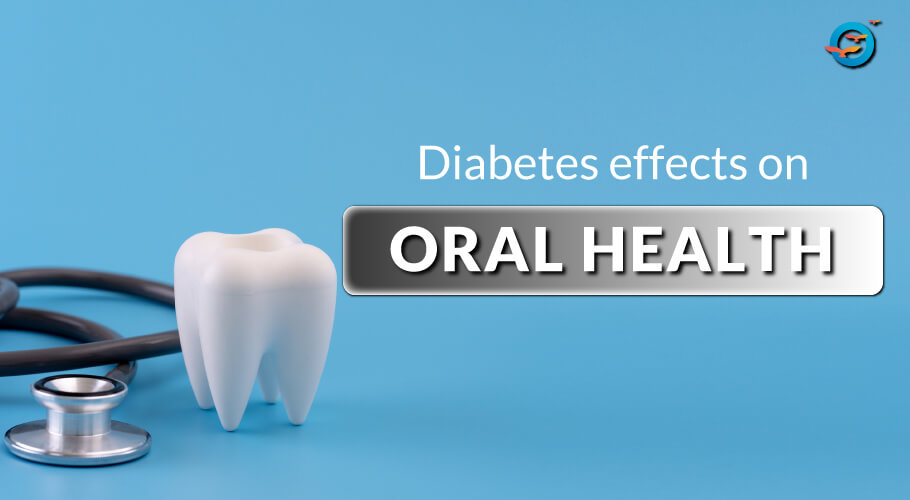People with diabetes who have irregular blood glucose levels are more likely to have tooth problems and gum disease than those who do not have diabetes. They have a lower resistance to infection and may not heal as quickly.
If you have diabetes, you must pay special attention to your oral health and dental care, as well as keeping your blood glucose levels within the normal range.
As the first signs and symptoms of diabetes can appear in the mouth, paying attention to your oral health and communicating with your doctor or dental practitioner about any changes can lead to an earlier diagnosis and treatment.
Symptoms to Look Out For:
- Bleeding or sore gums
- Infections occur frequently.
- Have bad breath that does not go away
Diabetes management will go a long way toward protecting your teeth and gums. This, in turn, will assist you in managing your diabetes.
If you have diabetes, keep an eye out for these oral health issues:
Gingivitis
- Gum disease is the most common oral health issue among diabetes patients.
- Gingivitis is the first stage of gum disease. When bacteria cause your gums to bleed, turn red and hurt, this is called gingivitis.
- Bacteria love sugar and convert it into tooth-damaging acid. Diabetes uncontrolled means more sugar in your saliva, which means a free feast for bacteria.
- Plaque is formed when bacteria combine with saliva and bits of leftover food. When it accumulates, it causes tooth decay and gum disease.
Periodontitis
- Gingivitis, if left untreated, can progress to periodontitis, a more serious type of gum disease that erodes the bone and tissues that support your teeth. In the worst-case scenario, you may lose your teeth.
- Bacteria and plaque can accumulate on your teeth if you do not floss and brush on a regular basis. As a result, your gums pull away from them. It forms pockets in which bacteria populate and destroys more and more parts of your mouth, including your bones.
- Periodontitis cannot be reversed or treated solely with brushing and flossing. Your dentist will have to step in. They may even refer you to a periodontist, who is a dental specialist. To save their teeth, some people require gum surgery too.
Diabetes and dental caries
- Diabetes patients may have more glucose in their saliva and dry mouth as their blood glucose levels rise. These conditions allow dental plaque to accumulate on teeth, resulting in tooth decay and cavities.
- Dental plaque can be removed by brushing your teeth and gums twice a day with fluoride toothpaste.
- Brushing the gums where they meet the teeth should be done gently, as brushing them too hard can cause gum loss.
- Clean your teeth on a daily basis with interdental cleaners or dental floss. Taking care of your teeth helps to prevent cavities and gum disease.
Dry Mouth
- Diabetes and ageing both reduce saliva production. This puts you at risk for dry mouth.
- Saliva is the source of the enzymes that attack bacteria. Bacteria can multiply in the absence of it.
- A dry mouth can cause not only sores and ulcers but also increased tooth decay and gum disease.
Delayed Wound Healing
- You may have noticed that wounds and infections heal more slowly. That is a result of both diabetes and ageing.
- At the same time, your infection risk rises. That, combined with slower healing, means that if something goes wrong with your gums or teeth, it will take longer to recover. And it could get worse even faster. This can also be an issue following dental surgery.
Preventive measures
If you have diabetes, it is recommended that you:
- Monitor your blood sugar levels.
- Brush (with a soft-bristled toothbrush) at least twice a day, and rinse with an antiseptic mouthwash.
- Once a day, clean between your teeth with dental floss or interdental cleaners.
- Visit your dentist every 6 to 12 months so they can examine your mouth, teeth, and gums for signs of oral conditions and get professionally clean your teeth.
- Drink plenty of water and chew sugar-free gum to avoid having a dry mouth.
- Inform your dentist about your diabetes and the medications you are taking. Inform them if your blood sugar is out of range, and if you use insulin, notify them when you took your most recent dose.


